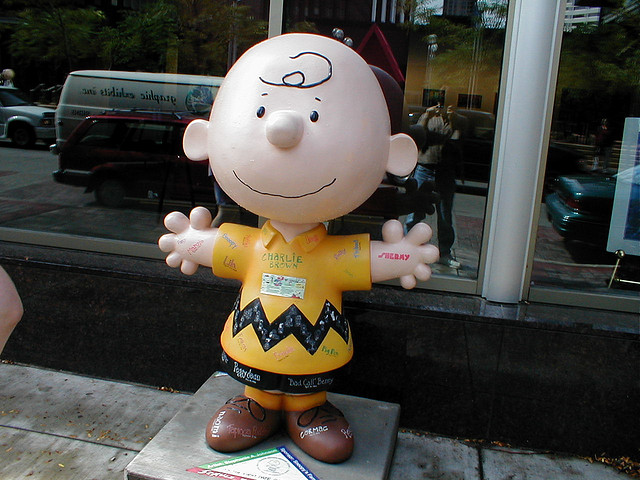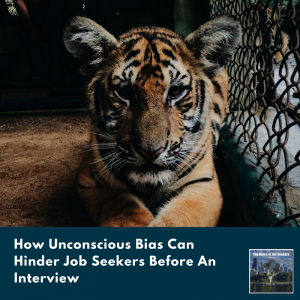
Editor’s note: I wrote this article JobMob published two weeks ago and thought I’d share it here. As a lifelong Charlie Brown fan (at one-time owned 10 volumes of Peanuts books), there was a lesson here that was more of a revelation.
Good Grief, Charlie Brown! Listen to the Employer and Learn What They Value! by Mark Anthony Dyson
If you don’t pay attention to employers’ needs, they won’t pay attention to yours.
When Charlie Brown said that Joe Shilabotnik was his all-time baseball hero in the Major Leagues, with a horrible batting average way below .200, we can understand why. As grown-ups, we do.
There is a valuable lesson here anyone could be your hero, and it doesn’t matter why it excites us. We know throughout the decades, Charlie Brown would have given up every single baseball card he owned for Joe Shilabotnik’s card.
Value works for us when we’ve hacked into the interests of the other person, or in this case, the employer.
If Charlie Brown is the job seeker and Lucy is the employer, then the benefit of creating value must be communicated. Job seekers go wrong in never demonstrating value when the moment comes. Employers want to win in value more often than in volume. Employers tell you what they need some time by what they don’t need.
Listen closely, and you can discern accurately.
I will dissect Charlie Brown’s approach from end to beginning to show how job seekers miss opportunities to connect with employers in demonstrating their value.
Good grief Charlie Brown, she threw what YOU valued away!
Lucy: “He’s not as cute as I thought!”
Lucy ends this segment by throwing the beloved Joe Shilabotnik baseball card in the garbage. Similar to an employer tossing a resume or at least filing it away with no other intentions to look at it again. Charlie Brown didn’t get that she liked Joe because at the moment, he was cute.
Lesson Learned: If you can’t persuade an employer what you have is valuable, then they will keep looking, sometimes forever (so it seems).
Good grief Charlie Brown, it’s not about volume.
Charlie Brown: (tosses his whole baseball card collection in the air) “For five years, I’ve been trying to get a Joe Shilabotnik! My favorite baseball player, and I can’t get him on a bubble gum card… five years! My favorite player…”
We identify with losers at times. Charlie Brown loved this guy despite his .157 minor-league batting average. My sons like badly-acted late ’80s and early ’90s sitcoms, but we like whom we like. Value is an individual decision we cherish for one reason or another from childhood.
Lucy, at least now, does not care about collecting baseball cards. She cares about one cute baseball player, although it is temporary.
Lesson learned: Charlie Brown didn’t earn attention because he never listened to what Lucy said. Had he mentioned “cute” once or twice throughout his face time with her and the card he desired, chances are he would have obtained her interest.
Job seekers who succeed find ways to understand the employer’s needs. What does the employer’s team or company care about? The job seeker who serves it up on a delectable platter to the employer has their attention, causing salivation and perhaps, career salvation.
Good Grief, Charlie Brown! Don’t you listen?
Employers test you from the beginning. They want to know you’re listening. Charlie Brown, who is representing the anxious job seeker, wants one thing. He thinks the way to get it is to trade.
Charlie Brown: “How about Nellie Fox, Dick Donovan, Willie Kirkland, Frank Lary, Al Kaline Orlando Pena, Jerry Lulupe, Camilo Pascual, Harmon Killebrew, Bob Turley, and Albie Pearson?”
Lucy: “No, I don’t want to trade…I think Joe Shilabotnik is kind of cute…”
Charlie Brown: “I’ll give you Tome Cheney, Chuck Cottier, Willie Mays, Orlando Cepeda, Maury Willis, Sandy Koufax, Frank Robinson, Bob Purkey, Bill Mazeroski, Harvey Hadoix, Warren Spahn, Hank Aaron, Tony Gonzales, Art Mahaffey, Roger Craig, Duke Snider, Don Nottebart, Al Spangler, Curt Simmons, Stan Musial, Ernie Banks, and Larry Jackson!”
Lucy: “No, I don’t think so…”
Lesson Learned: What are the chances that Charlie Brown could have offered Lucy to pick out several other “cute” players from his collection? Is it possible Charlie Brown owned other cards she desired?
The reality that job seekers must increase their value by offering substantially more to get one package is imminent.
Remember, employers hold the one card you want. They won’t give it away (or throw it away) unless a perceived value equals or exceeds what they hold. They don’t want to hire, but they could be persuaded possibly by something cute (or perceived by others as cute) as what they hold.
Creating opportunities is what you’ll need to do, but won’t happen by offering what is valuable only to you or what the employer’s competition cherishes. Lucy, the employer, is the one you need to convince.
Good Grief, Charlie Brown! Are you desperate?
Charlie Brown: “Joe Shilabotnik? Really? You have a Joe Shilabotnik? You have a Joe Shilabotnik Bubble Gum Card? He’s my favorite player! I’ve been trying to get him on a bubble gum card for five years! You wanna trade? Here…I’ll give you Whitey Ford, Mickey Mantle, Robin Roberts, Luis Aparicio, Bill Monbouquette, Dick Stuart, and Juan Pizarro!”
Lucy: “No, I don’t think so…”
Lesson learned: Um… strategy? Yes, Charlie Brown, the job seeker, lacks the correct strategy. He may not need to bargain if Lucy, the employer, was a real baseball fan that trades baseball cards. But she wasn’t. Just inundating her with what he has, without understanding what she wants, is a great way to be ignored.
Employers will respond if there is something they want. Lucy was only interested in “cute” Joe. If Lucy cared about his .157 batting average, she would have given the card to Charlie Brown without trading it.
Thank goodness! What did we learn, Charlie Brown?
Charlie Brown, the job seeker, was only a loser because he didn’t listen close enough to Lucy, the employer, ‘s message. Proactive listening is effective when you listen to what an employer says and doesn’t say. Employers will tell you “nice resume” even when it’s not all that nice. In most cases, the statement follows: “… but we will continue looking.”
If Charlie Brown figured out what Lucy valued, Charlie Brown would have kept all of his cards.
Job seekers will find the right employer only by listening closely to employer needs.
Read the original article at: http://jobmob.co.il/blog/learn-what-employers-value/
About Mark Anthony Dyson
I am the "The Voice of Job Seekers!" I offer compassionate career and job search advice as I hack and re-imagine the job search process. You need to be "the prescription to an employer's job description." You must be solution-oriented and work in positions in companies where you are the remedy. Your job search must be a lifestyle, and your career must be in front of you constantly. You can no longer shed your aspirations at the change seasons. There are strengths you have that need constant use and development. Be sure you sign up to download my E-Book, "421 Modern Job Search Tips 2021!" You can find my career advice and work in media outlets such as Forbes, Inc., Fast Company, Harvard Business Review, Glassdoor, and many other outlets.


![Job Interviewing 101: How to Succeed in Different Situations [INFOGRAPHIC]](https://thevoiceofjobseekers.com/wp-content/uploads/2013/03/ISF-JobInterviewing101-550.png)
